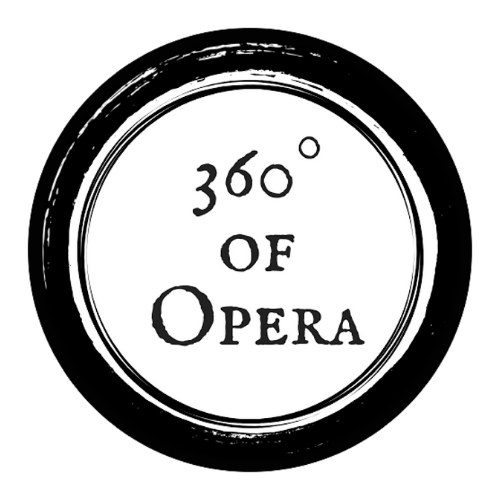Golda Schultz & Jonathan Ware: Hymns of Herstory
On April 8, 2024, soprano Golda Schultz and pianist Jonathan Ware graced the stage of Richardson Auditorium at Princeton University for Schultz’s debut with Princeton University Concerts. Their repertoire, previously featured on Schultz’s 2022 debut solo album This Be Her Verse on Alpha Classics, paid tribute to five great women composers spanning the Romantic era to the present day in a tender yet passionate “love letter to women in music.”
As PUC Director Marna Seltzer noted in her introduction, this may have been the first time PUC presented a Monday concert, but the audience’s enthusiasm eclipsed even the excitement of that day’s earlier solar eclipse. Seltzer also dedicated the recital to the memory of Maida Pollock, her predecessor who raised the funds and political capital to transform the building into the Richardson Auditorium.
The recital opened with four songs by Clara Schumann, showcasing Schultz’s delicate phrasing, nimble grace, and stunning breath control. In “Liebst du um Schönheit” and “Warum willst du and’re fragen,” she navigated the vocal lines with elegance, her pianissimo on “ich liebe dich” exuding haunting beauty. “Am Strande” highlighted her gift for storytelling as she painted the tumultuous sea through contrasts of sound and phrasing, always maintaining vocal ease and polish. Ware’s piano sounded like crashing waves, dramatic but never overpowering.
Their ingenious programming continued with Emilie Mayer’s lesser-known gems and Goethe’s famous “Der Erlkönig,” typically associated with Schubert. Schultz’s Erlking was gentle and alluring rather than menacing, making the tale’s horrible end even more devastating. Many in the audience hitched their breath as she built to the wrenching final line. Mayer’s “Du bist wie eine Blume” showcased Schultz’s bel canto line, possibly hinting at the sensuality of its poetic subject, a rabbi’s daughter, under the gaze of Heine. In “Wenn der Abendstern die Rosen,” she displayed impeccable breath control, taking breaths not out of necessity but as an artistic choice to shape each phrase.
Schultz and Ware took a moment to share their motivation for championing women composers. Tired of hearing “that’s good, for a woman,” they noted the absurdity that while women make up about half the global population, few singers sing 50% music by female composers in their recitals. When Emilie Mayer died in 1883, Schultz reflected, “it felt like the music she wrote died with her.” Their concert aimed to guarantee that women’s musical contributions are always acknowledged, respected, and valued.
The first half closed with four evocative songs by Rebecca Clarke. In “Down by the Salley Gardens,” Schultz’s dramatic pauses and hushed delivery heightened the sense of harrowing sadness. “The Tiger” inspired a bold, declamatory vocalism to match the piano’s ferocious prowling. Her tender, lilting “Cradle Song” felt like a lullaby. Most striking was “The Seal Man,” a dark tale of a mythical creature who lures a young woman to a watery grave. Schultz vividly embodied the characters, making the girl’s steadfast lack of fear palpable. Her pure tone took on an eerie edge in the repeated phrase “she was drowned, drowned,” the brutality all the more shocking after the preceding beauty.
Nadia Boulanger’s French songs opened the second half with soaring lyricism and evocative colors. In “La mer est plus belle,” Schultz captured a poignant duality, the voice’s sweetness tinged with sad longing. The spiritual ecstasy of “Prière” segued into the sensuous melancholy of “Élégie,” a Baudelaire setting which found solace in nature and art. Schultz also delivered a stirring rendition of “Cantique,” unleashing a stunning harmonic palette and beautifully elongated vocal line floating above Ware’s repeated chords.
The program’s centerpiece was This Be Her Verse, a new song cycle by composer Kathleen Tagg, who was in the house that night, and librettist Lila Palmer, commissioned by Schultz and Ware. In her composer’s note, Tagg explains the work aims to tell women’s stories “not from the outside with the woman victimized or placed on a pedestal — but in our own voices.” Ware’s astonishingly inventive piano effects, from stopped strings to chaotic bell-like clanging, vividly depicted each psychological state in counterpoint with Schultz’s kaleidoscopic vocalism.
Palmer’s visceral, incisive poetry illuminated the joys and pressures of the female experience, from the “ego self” of “After Philip Larkin” to the farcical hot mess of “Wedding,” and to the raw, redemptive power of “Single Bed.” Schultz inhabited each character with searing vulnerability, soaring effortlessly over Ware’s most thunderous gestures.
As Palmer notes, This Be Her Verse responds to Schumann’s iconic Frauenliebe und Leben song cycle, refracted through a contemporary female lens. “This song cycle has already been termed ‘brutal’ by one critic,” Palmer writes. “Brutal as life often is for women … we go on, loving, serving, working, laughing … May we have the courage to be honest, and be heard.”
For their encore, Schultz offered “Heimwee,” a moving piece about homesickness and the idea that home is wherever your heart is, written by South African composer Stephanus Le Roux Marais. It was a poignant and fitting way to conclude a memorable concert.
With this groundbreaking program, Schultz and Ware illuminated the stunning variety and emotional power of women’s musical voices. Thanks to their advocacy and artistry, the hope that female composers “are never not heard, dismissed, or slip into the ether” feels closer than ever to being realized.
-written by Chloe Yutong Yang.
-Photos courtesy of Princeton University Concerts; Credit: Alexis Branagan.





